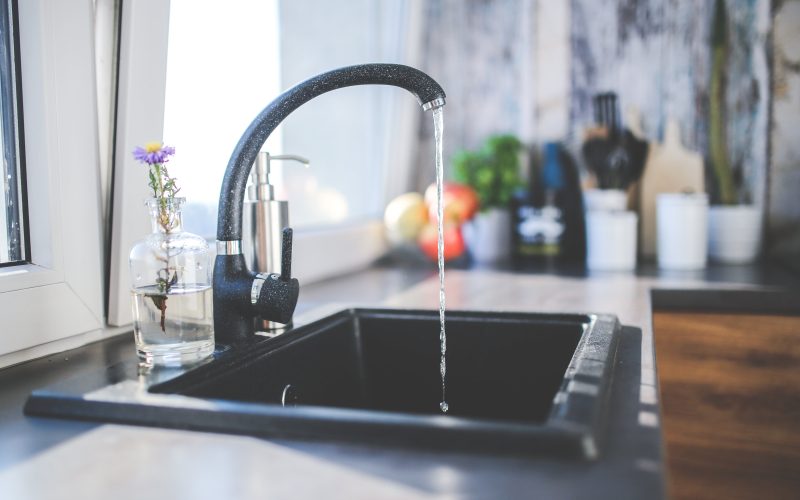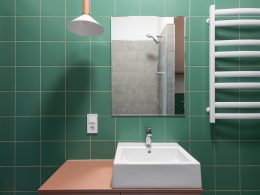In the picturesque landscapes and historical charm that define the United Kingdom, a persistent household woe often lurks unseen – low water pressure. The irksome trickle from your taps and showers can be a source of daily frustration.
In this exploration, we plunge into the depths of low water pressure, unveiling the most prevalent culprits afflicting British homes. By decoding these issues, we aim to empower you, the homeowner, with the knowledge to restore the vigorous flow of water to your abode.
Understanding Water Pressure Basics in the UK
We must grasp the fundamentals before we embark on our quest to unmask the reasons behind low water pressure. Water pressure, measured in bars, is the life force coursing through your plumbing, ensuring that showers invigorate and taps gush.
If your water pressure is too low, you should check that there is no problem with the plumbing in your property, such as a partially closed internal stop tap (if fitted) or a leak. If you cannot find a problem, contact your water company. They can take pressure and flow measurements and determine whether the problem lies in the company’s or your pipes.
Water companies should make sure that high water pressure does not cause damage to a customer’s property if the customer’s fittings meet normal standards. If you have a problem with water pressure, speak to your water company first.
Possible causes of supply and pressure issues
The most common causes for supply interruptions are bursts, home plumbing problems and network issues, including:
● an unseen leak;
● an air lock or blockage in the pipework;
● faults with private plumbing work.
Your flow can also be affected by:
● high demand in the morning and early evening;
● the size and condition of your service pipe;
● the height of your building;
● If you’re on a shared supply pipe, the number of neighbours that are also supplied by the same pipe can affect your water pressure.
If your pipes are in poor condition, changes in pressure can strain the pipework and cause it to burst, so it’s important you protect your pipes during cold weather and contact a plumber if you spot any damaged pipework.
If pipes become clogged, these blockages can disrupt water flow through your pipes. With the flow disrupted, water pressure will also go down. Pipes need to be cleaned out or replaced to address the issue.
Corroded plumbing: Clogs can be fixed by cleaning out or replacing small piping sections. These obstructions, forged from limescale, rust, and sundry debris, can diminish water flow to a mere trickle.
You’ll be equipped to wage a successful cleansing campaign with knowledge of detecting these impediments.
Pipe corrosion narrows the inside of the pipe, reducing water pressure a little at a time. The only way to fix this problem is to have your pipes replaced. You can tell if your pipes are beginning to fill with corrosion because you’ll notice that faucet water comes out red and rusty in the mornings.
Leaks can cause a loss in pressure and a reduced flow of water. There are some tests you can carry out at home to check for leaks that you can’t see. If you think your leak, you’ll need to get in touch with an expert local plumber to investigate and fix the leak for you.
Pressure regulators, the unsung guardians of your water pressure, require vigilance. We will delve into their crucial role within UK plumbing systems and educate you on recognising the signs of their demise.
If you consistently experience weak water flow, it could be due to a faulty pressure regulator. Low water pressure can be caused by sediment buildup, worn-out parts, or a malfunctioning regulator.
Excessive water pressure can cause leaks, burst pipes, and damage to appliances. When these stalwart defenders falter, replacement becomes paramount.
5. Municipal Water Supply Issues
Sometimes, the source of your water pressure tribulations extends beyond your abode’s walls. Municipal water supply problems can have a domino effect, affecting households across the UK.
If your water pressure is too low, you should check that there is no problem with the plumbing in your property, such as a partially closed internal stop tap (if fitted) or a leak. If you cannot find a problem, contact your water company.
6. High Demand within the Home or Neighborhood
Low water pressure sometimes results from collective thirst arising from simultaneous water usage within homes and neighbourhoods.
7. Old or Inadequate Plumbing Systems
Lastly, we confront outdated plumbing systems that haunt many traditional British homes. These ageing structures harbour unique challenges. Learn to decipher the signs that herald the need for a plumbing system upgrade, and explore the modernisation options available for your abode.
Leaks from old pipes and calcification can occur in old lead pipes and will lead to low water pressure. Regardless of the main network pressure, your lead pipe may be restricting the flow of water and can be exasperated by its internal diameter.
In closing, armed with the understanding of the common reasons for the low water pressure, you’re poised to rise above this vexing challenge. The fluid flow of water throughout your home need not remain a distant memory.
Addressing these issues head-on can restore water pressure to its invigorating best. Thus, as you navigate the unique landscape of British homes, may your taps forever flow freely, and your showers cascade with the vigour they deserve.









